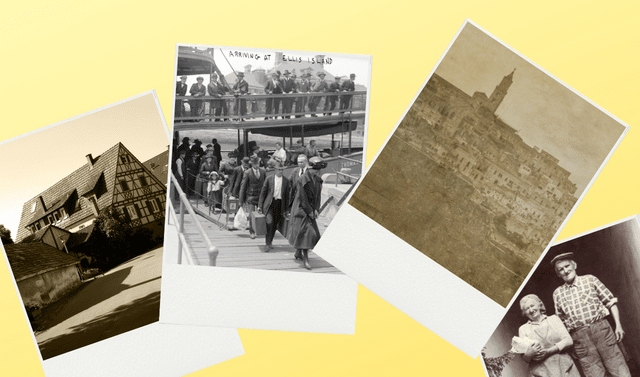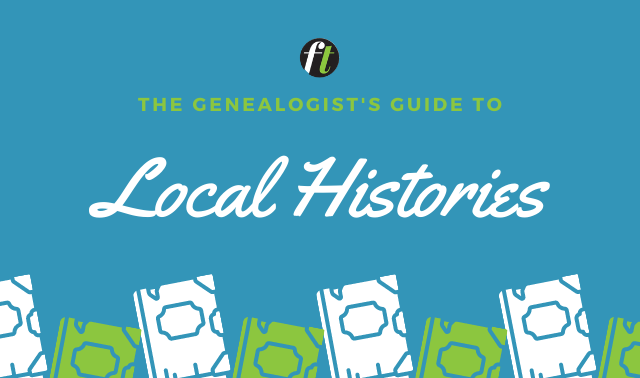Sign up for the Family Tree Newsletter Plus, you’ll receive our 10 Essential Genealogy Research Forms PDF as a special thank you!
Get Your Free Genealogy Forms
"*" indicates required fields
1. The Family History Library
Located in Salt Lake City, the massive Family History Library has more than 70,000 biography and family history volumes. You can search its holdings by several different categories, including by surname. The results will be a list of books that focus specifically on your family of interest as well as books that might contain your surname as an “allied” branch. At www.familysearch.org, follow the links to the Family History Library System, then the Catalog, then Surname Search. You can also search the catalog at your local Family History Center. If you find a published genealogy at the Family History Library and it’s been microfilmed, you can order a copy of the film through your local Family History Center. If it hasn’t been microfilmed, then you need to visit the library or have someone check the book for you.
2. Public libraries with genealogy and local history departments
Many public libraries with genealogy and local history collections now make their catalogs available online. For the locality where your ancestors lived, look for an online library catalog, then check to see if it has any published genealogies on your family. One major genealogy department with more than 38,000 published family histories is the Allen County Public Library in Fort Wayne, Ind.
3. Genealogical and Local History Books in Print
A great resource for determining if there’s a genealogy on your family is the four-volume set Genealogical and Local History Books in Print, 5th edition, edited by Marian Hoffman (Genealogical Publishing Co.), which should be available at most libraries with genealogical collections. The four volumes cover family histories, general reference books, US sources Alabama through New York and US sources North Carolina through Wyoming. Each listing in GLHBIP gives a brief description of the book, price and ordering information.
Remember, if a family history you seek is out of print, it won’t be listed here. To find a genealogy that’s out of print, check online used and rare book search services such as Alibris, Bibliofind, BookFinder, Powell’s Books and Amazon.com‘s rare and used books. Cyndi’s List provides many links to online used bookstores at www.cyndislist.com/books.htm#used.
4. Library of Congress
Theoretically, once someone has written a genealogy, the author should register it with the Library of Congress Copyright Office. To register, a writer must send two copies of the work with an application and fee. Once the copyright is approved, the book is donated to the library’s genealogical section. Genealogies in the Library of Congress: A Bibliography and its supplements, by Marion Kaminkow, consists of five massive volumes (Genealogical Publishing Co.). In these volumes (also available at libraries), you’ll find details on more than 50,000 family histories, published and unpublished, held by the Library of Congress. You can also check the library’s online catalog for published family histories.
5. Directory of Family Associations
You might also check Elizabeth P. Bentley’s Directory of Family Associations (Genealogical Publishing Co.). This directory will tell you if the family association has any publications. Even if you don’t discover a family history book, you could uncover an association newsletter or journal containing genealogies of different branches of your family.
6. Genealogical periodicals
Sometimes there isn’t enough material to fill a book, so a researcher will write the family history information as an article and submit it to a genealogical journal. At the Family History Library, at one of its worldwide Family History Centers or at a large genealogical library, ask for the Periodical Source Index, also known as PERSI (pronounced purr-see). This software lets you search articles by surname. Once you have the title of the article and periodical, ask if the library has that publication. If not, you can order the article through interlibrary loan from your public library or from the Allen County Public Library, which creates PERSI. Write to the Allen County Public Library Foundation, Box 2270, Fort Wayne, IN 46801, for the current photocopying fee and an order form, or download the form online.
7. County and local histories
Although not considered published family histories in the true sense of the term, county and local histories might contain biographical or genealogical sketches of the area’s first settlers and contemporary residents—possibly including your ancestors. One way such publications were often funded was inviting people to submit a short narrative and sometimes photographs of themselves or their ancestors, to be included in the history for a fee. Typically little or no research went into these biographies and genealogies; they contain what family members knew about their ancestry from family traditions. Still, some are fairly accurate and reliable, and may hold valuable clues that you might not find elsewhere. Check United States Local Histories in the Library of Congress: A Bibliography edited by Jack Kaminkow (Genealogical Publishing Co.) for the library’s 90,000 local histories up to 1972. The fifth volume contains histories from 1972 to 1976.
8. Commercial Web sites
Other places to check for published family histories are Web sites such as GenealogyLibrary.com. This site has collected nearly 3,000 family history books, concentrating on those published between 1880 and 1920 (works now in the public domain).
Also try Everton Publisher data. Plug in your surname or locality here to search 35,000 books related to family history, military, cemetery, county histories and periodicals. A free search will list the books containing that name or place, along with the book’s title, author, publisher and publisher’s address, and the page on which the word appears.
9. Family Web pages
You might also find electronically published family histories online. Some researchers find it more cost-effective to publish their genealogies electronically on their own home pages. You can search for family history Web pages at such sites as Genealogy.com and FamilySearch. You can search the entire Web for your ancestors’ surnames plus keywords such as genealogy or family on Google.
10. Aunt Tilda’s attic
Just because you don’t find a reference to your surname in any of the above sources doesn’t mean that no written family history exists. When Great-aunt Tilda wrote the family history, she might have made a limited number of copies, and the only place the book might be available is in some obscure research repository or in a trunk in Aunt Tilda’s attic. Sometimes the “book” is no more than photocopied pages bound in a notebook and distributed only among family. Make sure you check with all of your relatives to see if they’re aware of any such family history. Typically, however, authors today who go to the trouble of compiling a family history will make it known and available through at least one of the above avenues.
ADVERTISEMENT




